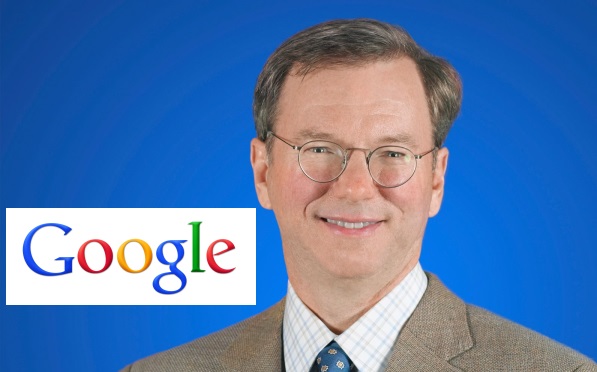Eric Schmidt Defends Google, Says Search Results Aren’t Cooked
Sign up to receive The Snapshot, a free special dispatch from Laptop Mag, in your inbox.
You are now subscribed
Your newsletter sign-up was successful
Google executive chairman Eric Schmidt was in the hot seat today on Capitol Hill to answer questions from a U.S. Senate panel about whether the company's business practices are anticompetitive. Wednesday's senate hearing was part of an antitrust investigation launched by the Federal Trade Commission against Google earlier this year.
At one point during the hearing, Sen. Mike Lee (R-Utah) asked Schmidt to explain why Google Shopping results consistently ranked third for many shopping-related keywords.
"While Nextab, Pricegrabber, and Shopper all show significant variation – ranking first for some [keywords] and near fifth for others – Google has a very consistent rate of success," Lee said. "Google shopping ranked third in virtually every single instance ... This seems to me like an uncanny statistical coincidence."
Schmidt said that he would need to see the technical details of the report to provide a proper explanation but speculated that the admittedly strange results were due to the sites mentioned being product comparison sites and Google being a service that searches for products directly.
"The two cannot be properly compared," Schmidt said.
The answer confused many senators and caused Lee to accuse Google of "cooking" its search results so that its services always rank third.
"I can assure you we've not cooked anything," Schmidt responded, to which Lee quipped that Google has "an uncanny attraction to the number three in that instance."
Sign up to receive The Snapshot, a free special dispatch from Laptop Mag, in your inbox.
The senate hearing also included testimony by representatives from Yelp, Expedia, and Nextag, which have all accused Google of using its search dominance to bury results from competing businesses.
Google's Yelp Ultimatum
In a written statement published online before the hearing, Yelp CEO Jeremy Stoppelman accused Google of displaying Yelp reviews without permission as part of its local business information service, Google Local.
When Yelp accused Google of using its information without a license, Google offered Yelp a "false choice."
"In response to our objections, Google informed us that it would cease the practice only if we agreed to be removed from Google's web search index, thereby preventing Yelp from appearing anywhere in Google web search results,” Stoppelman said in his written statement.
In his testimony today, Stoppelman told senators that he doubts he would be able to start Yelp today because of Google’s recent actions.
"Google hopes to be a destination site rather than pointing people to other sites," he said.
Near the end of today's nearly three-hour hearing, Sen. Richard Blumenthal (D., Conn.) asked Google outside lawyer Susan Creighton whether she believed the company was a monopoly.
Creighton responded that she doesn't believe it is, in part because Google's search engine market share is only 65 to 70 percent, and that the figure would have to be 80 percent for Google to technically qualify as a monopoly.
Article provided by TechNewsDaily, a sister site to Laptopmag.com.

